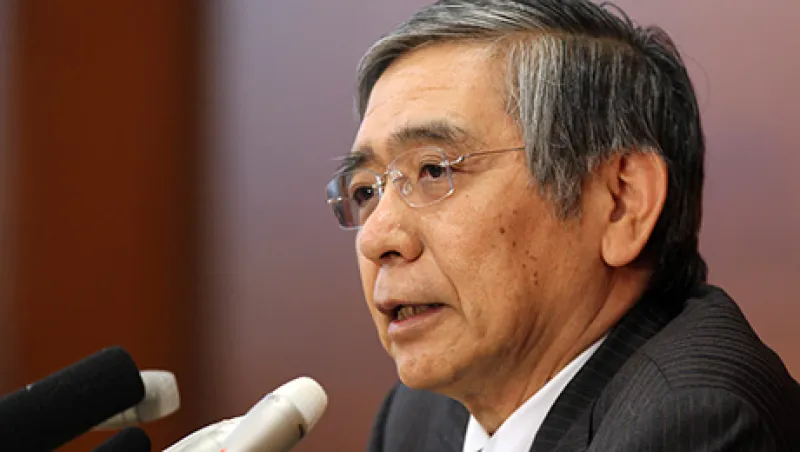
Haruhiko Kuroda, governor of the Bank of Japan (BOJ), speaks during a news conference at the central bank's headquarters in Tokyo, Japan, on Tuesday, Oct. 7, 2014. The Bank of Japan marked down its assessment of industrial production as dissent spread on the outlook for inflation. Photographer: Junko Kimura-Matsumoto/Bloomberg *** Local Caption *** Haruhiko Kuroda
Junko Kimura-Matsumoto/Bloomberg

